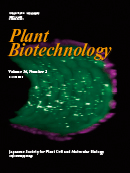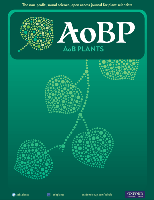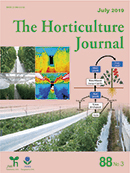
Plant Biotechnology Reports
Scope & Guideline
Cultivating Knowledge in Biotechnology Research
Introduction
Aims and Scopes
- Molecular Plant Breeding:
Research articles often explore genetic modification and molecular breeding techniques to enhance desirable traits in crops, focusing on stress tolerance, yield improvement, and disease resistance. - Genetic Engineering and CRISPR Technology:
The journal frequently publishes studies on CRISPR/Cas9 and other gene-editing technologies, examining their applications in creating transgenic plants and improving crop resilience to biotic and abiotic stresses. - Plant Responses to Environmental Stressors:
A significant portion of the research addresses how plants respond to various abiotic stresses such as drought, salinity, and temperature extremes, contributing to our understanding of stress mechanisms and potential biotechnological interventions. - Biotechnological Applications in Crop Improvement:
The journal highlights biotechnological strategies for enhancing crop quality, including the production of pharmaceuticals, bioactive compounds, and improved nutritional profiles. - Plant Microbiome and Endophytic Interactions:
Research often delves into the role of plant-associated microorganisms in promoting plant health and stress resistance, emphasizing sustainable practices in agriculture.
Trending and Emerging
- Sustainable Agriculture Practices:
There is a growing emphasis on research that integrates biotechnology with sustainable farming practices, including the use of biopesticides and biofertilizers, to reduce chemical inputs and enhance ecosystem health. - Metabolomics and Functional Genomics:
An increasing number of studies are exploring metabolomic profiling and functional genomic approaches to understand the biochemical pathways involved in stress responses and secondary metabolite production. - Plant-Made Pharmaceuticals:
Research into the production of pharmaceuticals in plants is gaining traction, focusing on the potential of plants as biofactories for human therapeutics, which aligns with the demand for sustainable production methods. - Microbiome and Plant Interactions:
Emerging research is delving into the interactions between plants and their microbiomes, aiming to leverage these relationships to improve plant health and resilience against diseases. - CRISPR and Advanced Gene Editing Technologies:
The application of advanced gene editing technologies, particularly CRISPR/Cas systems, is on the rise, showcasing innovative techniques for precise genetic modifications in various plant species.
Declining or Waning
- Traditional Breeding Techniques:
There has been a noticeable decrease in publications centered on conventional plant breeding techniques, as the focus shifts toward molecular and genetic approaches that offer more precise outcomes. - Basic Plant Physiology Studies:
Research articles concentrating solely on fundamental plant physiological processes without a biotechnological application are less frequently published, reflecting a trend toward applied research. - Invasive Species Management:
Topics related to the management of invasive plant species through biotechnological means have become less prominent, possibly overshadowed by more pressing concerns regarding crop improvement and sustainability.
Similar Journals

Plant Biotechnology
Shaping the Future of Crop Innovation.Plant Biotechnology is a distinguished journal published by the Japanese Society for Plant Cell and Molecular Biology, committed to advancing the field of plant biotechnology through the dissemination of high-quality research. With an ISSN of 1342-4580, this journal caters to a global audience interested in agronomy, crop science, and plant molecular biology. The journal has achieved notable rankings, including Q2 in Agronomy and Crop Science and Q2 in Plant Science, underscoring its relevance and impact in these fields according to the latest 2023 metrics. Furthermore, it holds a respectable position within Scopus rankings across multiple categories, indicating its contribution to the academic community. Although it is not an open-access journal, its regular publications, spanning from 1997 to 2024, feature cutting-edge studies that explore innovative approaches and technologies in plant science. Researchers, professionals, and students will find Plant Biotechnology an essential resource for staying informed on significant advancements and trends in plant research.

AoB Plants
Leading the way in plant science advancements.AoB Plants is a distinguished open-access journal published by Oxford University Press, dedicated to advancing the field of plant science. Since its inception in 2009, this journal has played a pivotal role in disseminating high-quality research that encompasses a wide range of topics including plant biology, ecology, and biotechnology. With an impressive impact factor and a ranking in the Q1 quartile for Plant Science, AoB Plants is recognized for its innovative contributions and scholarly rigor, ranking #129 out of 516 in the Scopus Agricultural and Biological Sciences category, placing it in the 75th percentile among its peers. By promoting open-access availability of research findings, the journal empowers researchers and practitioners alike, facilitating greater collaboration and knowledge sharing in the global scientific community. Situated in the heart of the United Kingdom, AoB Plants continues its commitment to providing a platform for pioneering research and developments in plant science, thus fostering a deeper understanding of the crucial roles that plants play in our ecosystems and economies.

Plant Stress
Innovating Research on Plant Responses to Environmental ChallengesPlant Stress is a prestigious academic journal published by Elsevier that focuses on the critical study of stress responses in plants, bridging vital areas such as ecology, evolution, and plant science. With its ISSN 2667-064X, this journal serves as an essential platform for researchers and professionals seeking to explore innovative findings and advancements in plant stress biology. Its notable rankings in the Q1 category for both Ecology, Evolution, Behavior, and Systematics and Plant Science as of 2023 further establish its significance, being recognized in the top quartile of its field. The journal’s impressive Scopus ranks, including Rank #144/721 and Rank #107/516 in the respective categories, highlight its influence and the quality of research it disseminates. While currently not offering Open Access, Plant Stress is instrumental in fostering academic dialogue and collaboration among researchers worldwide, with implications that extend beyond theoretical studies into practical applications in agriculture and environmental management. For those dedicated to understanding plant resilience and stress adaptation, Plant Stress is an indispensable resource.

Egyptian Journal of Botany
Fostering collaboration in the botanical community.Egyptian Journal of Botany is a premier publication in the field of botanical sciences, encompassing agricultural research, plant biology, and ecology. Published by the NATL INFORMATION DOCUMENTATION CENT, ACAD SCIENTIFIC RESEARCH & TECHNOLOGY in Egypt, this journal has made significant strides since its establishment, now recognized within several prestigious Scopus quartiles including Q3 in Agronomy and Crop Science, and Q3 in Ecology, reflecting its impact and relevance in the scientific community. With an aim to disseminate high-quality research and foster innovation in plant sciences, the journal provides a platform for researchers, professionals, and students alike to share vital findings and advancements. Although it currently operates under traditional access, the wealth of knowledge it offers is pivotal for those engaged in ecological preservation, crop improvement, and biotechnological applications. With its comprehensive scope and evolving reputation, the Egyptian Journal of Botany is poised to remain an influential player in the botanical sciences from 2019 to 2024 and beyond.

Horticulture Journal
Connecting Researchers to Sustainable SolutionsThe Horticulture Journal, published by the Japan Society for Horticultural Science, is a leading academic platform dedicated to the advancement of horticultural research and practices. With an ISSN of 2189-0102 and an E-ISSN of 2189-0110, this journal endeavors to publish high-quality research that emphasizes innovative techniques, sustainable practices, and the science of plant cultivation. The journal has been recognized for its impact within the field, currently holding a Q2 ranking in Horticulture and a Q3 ranking in Plant Science as of 2023, indicating its significant contribution to advancing knowledge. With its open-access model, researchers, professionals, and students have the opportunity to engage with the latest findings, thanks to the journal's commitment to widespread dissemination of information. Since its convergence period began in 2015 and continuing through to 2024, the Horticulture Journal remains instrumental in promoting sustainable and beneficial practices in horticulture science globally.

JOURNAL OF PLANT BIOCHEMISTRY AND BIOTECHNOLOGY
Unlocking the Secrets of Plant Biology for Sustainable SolutionsJOURNAL OF PLANT BIOCHEMISTRY AND BIOTECHNOLOGY, published by SPRINGER INDIA, is a leading publication dedicated to advancing research in the fields of plant biochemistry, biotechnology, agronomy, and crop science. With an ISSN of 0971-7811 and E-ISSN 0974-1275, the journal encompasses a wide range of studies aimed at enhancing our understanding of plant biological processes and their applications in agriculture and biotechnology. It has achieved a noteworthy Q2 ranking in Agronomy and Crop Science and Plant Science, as well as a Q3 ranking in Biotechnology, reflecting its quality and relevance in contemporary research. Notably, the journal ranks #166 in Plant Science and #133 in Agronomy, both falling in the top 67th percentile. With a rich history spanning from 1992 to 2024, the journal is committed to providing open access to innovative research findings that bridge the gap between laboratory discoveries and their practical applications in sustainable agriculture. Researchers, professionals, and students will find a wealth of knowledge and inspiration to advance their work in the dynamic field of plant sciences at this esteemed journal.

PHYSIOLOGY AND MOLECULAR BIOLOGY OF PLANTS
Cultivating Knowledge for Future GenerationsPHYSIOLOGY AND MOLECULAR BIOLOGY OF PLANTS, published by SPRINGER, is a vital journal focused on the advancing field of plant science. Featuring research that spans physiology, molecular biology, and their applications in agriculture, this journal is pivotal for academics, professionals, and students keen on understanding plant processes and enhancing crop production. With an ISSN of 0971-5894 and an E-ISSN of 0974-0430, this journal is recognized for its scholarly significance, ranking in the Q3 category in Molecular Biology, Q2 in Physiology, and Q1 in Plant Science as of 2023. The journal maintains a strong position in the Scopus rankings, with notable percentile rankings including 87th in Plant Science. Established in 2000, this publication aims to foster the dissemination of cutting-edge research by providing a platform for open discussion and knowledge sharing about plant physiology and molecular mechanisms. While it does not currently offer open access options, its comprehensive studies and reviews serve as an essential resource for enhancing our understanding of plant biology.

JOURNAL OF PLANT BIOLOGY
Cultivating Knowledge for Sustainable SolutionsJOURNAL OF PLANT BIOLOGY, published by SPRINGER HEIDELBERG, is a leading academic journal dedicated to advancing the field of plant science. With an impressive impact factor signifying its high citation rate and rigorous peer-review process, this journal ranks in the Q1 category within Plant Science, placing it among the top-tier periodicals in the discipline. Established in 1999, it has become an essential resource for researchers, professionals, and students seeking the latest findings and developments in plant biology. The journal fosters a collaborative environment for sharing innovative research, exploring ecological interactions, and understanding plant physiology, thereby contributing significantly to advancements in sustainable agriculture and environmental conservation. Its high Scopus ranking of 102 out of 516 in the category of Agricultural and Biological Sciences further underscores its relevance and impact within the scientific community. For those interested in cutting-edge research, JOURNAL OF PLANT BIOLOGY is a vital source of knowledge, offering insights that are crucial for the future of plant science.

aBIOTECH
Exploring the frontiers of molecular biology.aBIOTECH, published by SPRINGERNATURE, is a premier academic journal dedicated to advancing the fields of biotechnology, agronomy, and molecular biology. With an impressive ISSN of 2096-6326 and E-ISSN 2662-1738, this journal has established itself as a vital resource for researchers and professionals aiming to publish high-quality, impactful studies. Based in Singapore, aBIOTECH has achieved remarkable recognition, boasting a Q1 ranking in multiple categories including Agronomy and Crop Science, Biochemistry, and Genetics in the 2023 Scopus rankings. Its solid position in the 90th percentile for Biochemistry and Genetics reinforces its significance within the global scientific community. The journal covers a broad spectrum of topics relevant to both basic and applied research, facilitating a shared dialogue amongst scientists and encouraging collaborative progress in innovative biotechnological applications. The open-access nature of the journal ensures that cutting-edge research is freely available, fostering a global exchange of ideas that is critical to the advancement of science today.

IN VITRO CELLULAR & DEVELOPMENTAL BIOLOGY-PLANT
Pioneering Insights into Plant Cellular DynamicsIN VITRO CELLULAR & DEVELOPMENTAL BIOLOGY-PLANT, published by SPRINGER, is a pivotal scholarly journal dedicated to advancing the understanding of plant cellular biology, developmental processes, and biotechnology. With its ISSN 1054-5476 and E-ISSN 1475-2689, this journal has been a key resource since its inception, converging years from 1972 through 2024. The journal's robust impact is reflected in its 2023 Scopus rankings, placing it in the 77th percentile in the field of Plant Science and showcasing its relevance through quartile classifications such as Q3 in Biotechnology and Q2 in Plant Science. Although not fully open access, its rigorous peer-reviewed articles provide critical insights and foster innovative research, making it an essential read for researchers, professionals, and students dedicated to exploring the complexities of plant biology and biotechnological applications. By regularly featuring cutting-edge studies, IN VITRO CELLULAR & DEVELOPMENTAL BIOLOGY-PLANT serves as a vital platform for exchanging knowledge that drives the field forward.